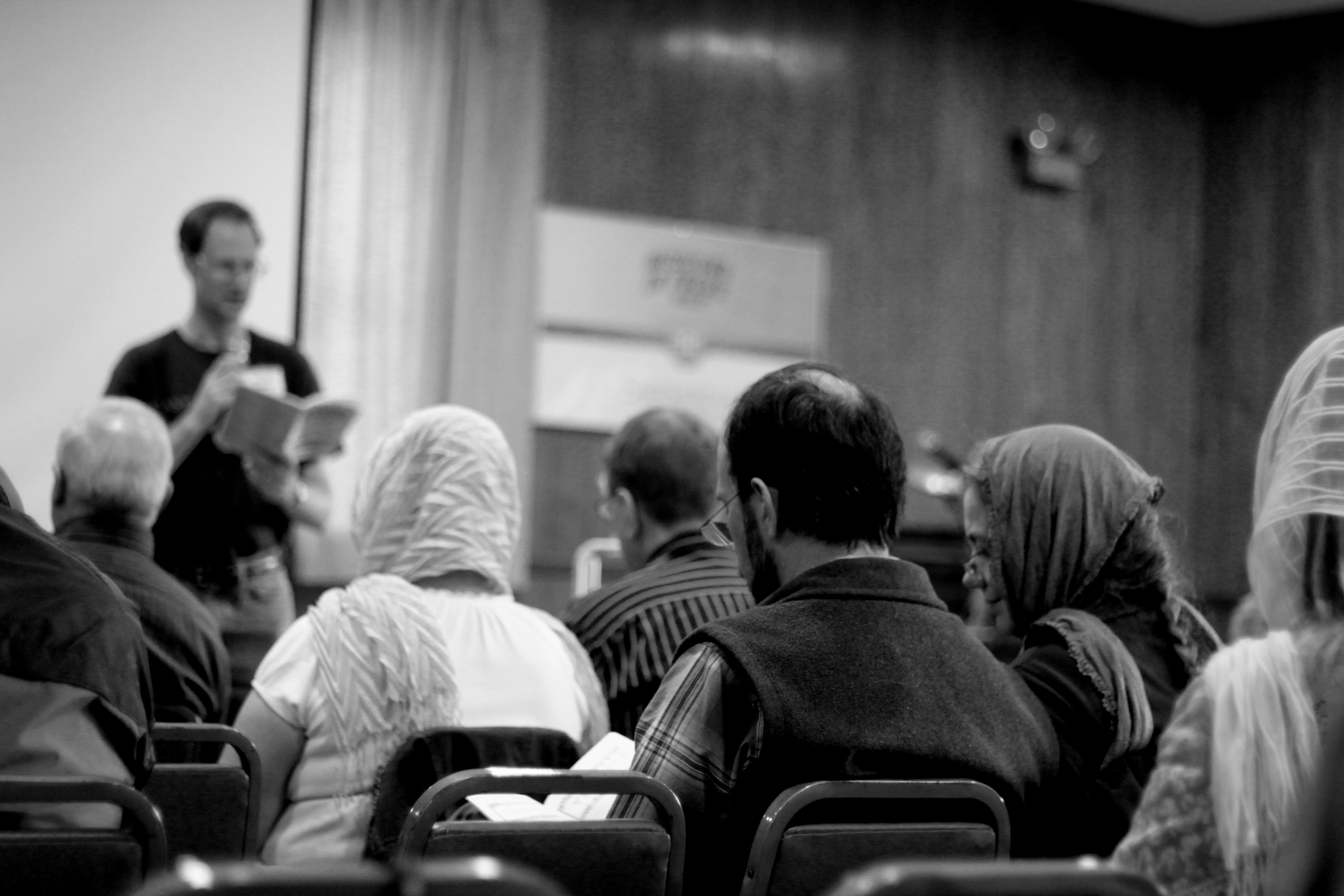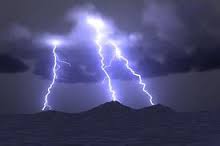The Church - Part 2

Paul in writing to Timothy speaks of "the house of God, which is the church of the living God, the pillar and ground (or base) of the truth" (1 Tim. 3:15). Again, in the epistle to the Ephesians, we read of "the household of God" and of "an habitation of God through the Spirit" (2:19-22). In the first Scripture Paul was hoping to see Timothy "shortly," but if that was not possible he wrote instructing him how he should "behave…in the house of God, which is the church." It is therefore quite evident that God had found a dwelling place amongst His people on the earth.
A careful consideration of this stupendous fact must impress us with both its blessedness and its challenge. God is love, and the presence of One who in His nature is perfect love must indeed be most blessed: but God is also holy, and as dwelling among His people He does not surrender any feature of His holiness. "Holiness becometh Thine house, O Lord, for ever" (Ps. 93:5).
Throughout Scripture we see that it was God’s desire to enjoy the company of His people, and a reference to some of the chapters in which this desire is expressed will show how carefully the Holy Spirit has guarded the thought of God’s holiness as dwelling amongst His own. In Exodus 25:8 we read, "And let them make Me a sanctuary; that I may dwell among them." In the verses immediately preceding we have a collection of things which speak of priestly features. "Oil for the light, spices for anointing oil, and for sweet incense. Onyx stones, and stones to be set in the ephod, and in the breastplate." In Exodus 29:44, we read "I will sanctify also both Aaron and his sons, to minister to Me in the priest’s office." Then the next verse adds, "And I will dwell among the children of Israel, and will be their God." Would it not suggest that God is looking for such features of holiness to mark those among whom He desired to dwell?
Then in 1 Kings 6:13, He says, "And I will dwell among the children of Israel."The verse preceding indicates the moral condition which God looks for amongst His people, "If thou wilt walk in My statutes, and execute My judgments, and keep My commandments to walk in them." God could not dwell in the midst of a lawless, disobedient people.
In the New Testament Paul exhorts the Corinthian believers to judge and be separate from all that is inconsistent with the nature of God, reminding them that they "are the temple of the living God," adding the gracious promise of God Himself, "I will dwell in them, and walk in them; and I will be their God, and they shall be My people" (2 Cor. 6:14-18). It is perhaps good to remember (although this is after the church has been taken to heaven) that when God tabernacles with man in the eternal state, everything contrary to the nature of God will have been removed for ever (see Rev. 21:3-5).
Now the important question arises, how is it possible for such as we, ruined by the fall and sinners by nature and by practice, to be part of that company amongst whom God now dwells? The first reference to God’s habitation is found in Exodus 15. God had appeared to men in earlier times; Enoch and Noah had "walked with God"; Abraham and Isaac had walked before Him (Gen. 48:15), but there had been no company of people with whom God dwelt. The simple, yet profoundly blessed truth is that the people amongst whom God dwells are those whom He has redeemed to Himself. This is plainly seen in a later verse of Exodus 15, "Thou in Thy mercy hast led forth the people which Thou hast redeemed: Thou hast guided them in Thy strength unto Thy holy habitation" (v. 13). They were a people delivered by God from Egypt’s power and bondage, standing before Him on the basis of blood that had been shed; brought safely through the Red Sea, God’s "own people for ever" (1 Chr. 17:22).
If we turn to Ephesians 2 we find the same truth set forth in the most blessed way. The chapter commences with a reference to ourselves in our sinful, dead condition; a state in which we could in no wise be found enjoying the presence of God, nor could we in that condition be responsive to Him. Verse 4 introduces a completely new note - "But God." All depended upon God and upon what He would do to provide a dwelling place for Himself. His "rich mercy," His "great love," the "exceeding riches of His grace in His kindness" have all been operative in this great matter. "We are His workmanship," and we have been "made nigh by the blood of Christ. For He is our peace." The partition between Jew and Gentile has been broken down; we have been reconciled to God and we "have access by one Spirit to the Father." Thus we are brought into the "household of God…builded together (Jew and Gentile) for an habitation of God through the Spirit." What a triumph this is for God - and what value is placed on the work of Christ!
It has ever been the thought of God that His saints, in nearness to Himself, should be responsive to the desires of His own blessed heart. The Psalmist could say, "Thou are holy, Thou that dwellest amid the praises of Israel." From Exodus 19:6, we learn that God desired that all His people should be unto Him "a kingdom of priests, and an holy nation." It was not until breakdown came in that a special tribe was chosen for the priesthood. God has not given up His thoughts, and we read in Peter’s first epistle, chapter 2, that those who "have tasted that the Lord is gracious" are "built up a spiritual house, an holy priesthood, to offer up spiritual sacrifices, acceptable to God by Jesus Christ." We have already referred to the "house of God, which is the church of the living God," and those who serve Him in His house are themselves referred to as "living stones." Long ago Hezekiah the king said, "The grave cannot praise Thee, death cannot celebrate Thee; the living, the living, he shall praise Thee." Through infinite mercy we are numbered amongst those who are "alive unto God through Jesus Christ our Lord" (Rom. 6:11) and thus form part of that living structure where the living God dwells in the praises of His saints.
This note of praise is continuing, as we see from Hebrews 2:12, "in the Midst of the church I will sing Thy praise." It will continue, for in Revelation 5 the twenty-four elders - "kings and priests" - break out into a note of praise which finds its echo in "every creature." The number twenty-four is interesting and would perhaps link in a moral sense with 1 Chronicles 24 where the priestly service of "the house of the Lord" is seen functioning in its twenty-four courses as under the ordering of David.
Finally, the church is referred to in Timothy as "the pillar and ground (or base) of the truth." Immediately following we have that remarkable 16th verse which brings the precious details of the incarnation before us in so wonderful a way. This surely is the great feature of the truth which is enshrined in the hearts of those who form part of the church today. The revelation of God in Christ, the testimony rendered to Him, the faith which has responded to that testimony, and the knowledge of His present place of exaltation in the glory of God, are cardinal truths which are an integral part of "the faith which was once delivered unto the saints" (Jude 3). The church does not teach these truths; nowhere in Scripture is the church referred to as teaching. She is herself taught by the Holy Spirit of God, and these great truths have been held in faithfulness by loyal hearts throughout the whole of the church’s history here. In days of bitter persecution and martyrdom, in the so-called "dark ages" too, men and women have refused to surrender their faith; many have sealed it with their blood.
We live in days of comparative ease; free from outward persecution, but the call for faithfulness to the principles of God’s house is an urgent as ever. "Evil men and seducers shall wax worse and worse, deceiving and being deceived" (2 Tim. 3:13). From the very ranks of the profession men have arisen "speaking perverse things, to draw away disciples after them" (Acts 20:30). It is significant that the only other place in the New Testament besides Ephesians 2 in which the same Greek word for "habitation" is used is in Revelation 18:2: "Babylon" that great system of corruption and of challenge to the glory of God "is become the habitation of devils and the hold of every foul spirit, and a cage for every unclean and hateful bird."
May we, as helped of God, ever recognize the holiness of His house; having our part in the praise of the living God, and holding steadfastly to the truth as it has been revealed in the power of the Spirit of God.





